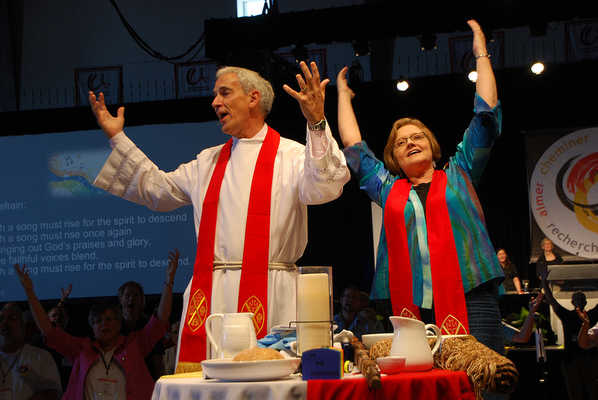Q&A: Why United Church activists are targeting Israel:
Q Your task force has 15 members and you say that the boycott expresses the will of the 60 congregations in your church region. How do you know it reflects the views of those 7,000 members in those congregations?
A A corporation doesn’t have all its policies approved by all their shareholders, do they? We did not go to every single individual and every single congregation, but we’re a body of the United Church that has the authority to make these decisions and we did that.
Q Has the national church endorsed what you’re doing?
A The national church has not endorsed this campaign, but it hasn’t unendorsed it either.
Q What other countries are you targetting for boycotts?
A We’re active in a whole bunch of issues.
Q But what other boycotts have you called for?
A Oh, boycotts. Well, not necessarily boycotts at this point. But this is a long entrenched problem and boycotts have been called for against Israel by civil society in many other countries.
Q But I am wondering what other boycotts your group has called for or been involved with.
A We have participated in other boycott campaigns. In South Africa we participated during the era of apartheid.
Q That was a while ago. What oppressive regimes have you called for boycotts against since then? There are many oppressive regimes in Africa and the Middle East. Or what about communist China?
A No, we have not.
Q So why a boycott of Israel?
A Number one, because Israel purports to be a democracy. Number two, they are in violation of international law and even the UN has tried to call Israel to account. So what is left for people who want to see international law enforced? Libya just happened and the U.S. jumped to take on the presumed responsibility to protect civilians; they jumped in with all kinds of force. But they won’t do that against Israel ever because Israel purports to be a democracy.
Q You say five of the companies extract minerals from occupied land or exploit labour or is a supporter of the IDF. Does Indigo make books in Israel?
A Chapters Indigo owners [Heather] Reisman and [Gerald] Schwartz founded the HESEG foundation, which provides scholarships and other support to “lone soldiers” who have been in the Israeli military. [Lone soldiers are Jews who leave their home countries to join the Israeli army. They have no family in Israel, but often want to stay once their military service is done.]
Q Why would you boycott the company then? This is not the company doing this, but a couple as private citizens.
A I don’t know what to say to you. It’s not a purely private interest. They use the profits from their ownership from this huge company. They are supporting the occupation. This was the only way we could bring the light of day to how the profits of this company support this foundation.
Q Are you concerned that people think you’re fixated on Israel?
A This is not our only effort. We do anti-poverty work, we’ve lobbied about aboriginal rights and environmental issues.
Q But to be clear, you don’t target other countries.
A No.


